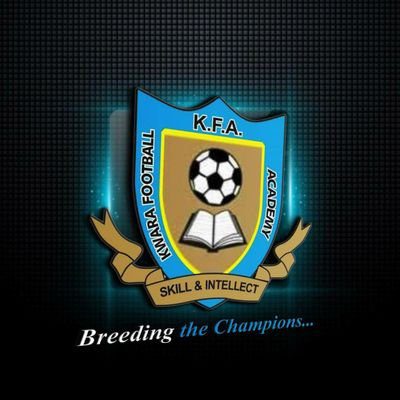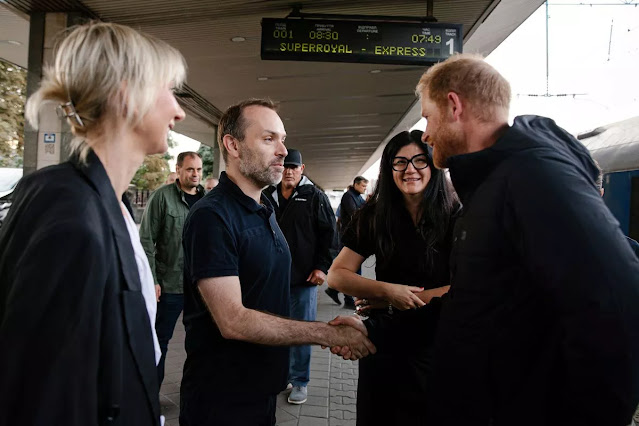In a bold move to strengthen the synergy between grassroots and professional football in Kwara State, Coach Bolakale Adisa Magaji, the Executive Chairman of the Kwara State Sports Commission, has called on Kwara United Football Club of Ilorin to elevate the Kwara Football Academy (KFA) into a formal feeder team for the club. This strategic proposal aims to create a seamless pipeline for nurturing and promoting young football talents into the senior ranks of Kwara United, fostering sustainable growth in the state’s football ecosystem.
Magaji made this impassioned appeal during a courtesy visit from members of the Nigerian Football Coaches Association, led by its State Chairman, Coach Tunde Sanni. The visit was organized to congratulate Magaji on his reappointment as the head of the Kwara State Sports Commission and to reaffirm the football community’s commitment to collaborating with the commission for the advancement of sports in the region. The meeting, held at the commission’s headquarters, provided a platform for stakeholders to discuss critical issues affecting football development in Kwara State, with the transformation of the Kwara Football Academy emerging as a focal point.
A Vision for Talent Development
Magaji’s proposal to transform the Kwara Football Academy into a feeder team for Kwara United is rooted in a vision to create a structured and sustainable talent development system. He emphasized that such a move would establish a clear pathway for young players to transition from the academy to the senior squad, ensuring that the club benefits from a steady influx of homegrown talent. “The Kwara Football Academy has the potential to serve as the backbone of Kwara United’s success,” Magaji stated. “By formalizing this relationship, we can ensure that at least three players graduate from the academy to the senior team each year. This will not only strengthen the club but also provide opportunities for young athletes to realize their dreams.”
The Executive Chairman highlighted that both Kwara United and the Kwara Football Academy are owned and financed by the Kwara State Government, making the integration of the two entities a logical and cost-effective strategy. By aligning their objectives, the state can maximize its investment in sports infrastructure and human capital, creating a model that other states in Nigeria could emulate. Magaji pointed out that the academy, established to identify and nurture young football talents across Kwara, has already produced several promising players. However, without a structured pathway to the senior team, many of these talents risk being overlooked or lost to rival clubs outside the state.
“This initiative is about building a legacy,” Magaji explained. “We want to create a system where young players see a clear route to professional football right here in Kwara. This will motivate them to work harder, knowing that their efforts at the academy can lead directly to a spot in Kwara United’s first team.” He added that the feeder team model would also reduce the club’s reliance on external recruitment, which often comes with high costs and uncertainties. By focusing on homegrown talent, Kwara United could build a squad with a strong sense of identity and loyalty to the club and the state.
Strengthening Synergy Between Stakeholders
Magaji’s call for transforming the academy into a feeder team also underscores the need for greater collaboration between the Kwara State Sports Commission, Kwara United, and other stakeholders in the state’s sports ecosystem. During the courtesy visit, he commended the Nigerian Football Coaches Association’s state chapter for their proactive engagement and urged them to deepen their partnership with the government. “The success of football in Kwara depends on all of us working together,” he said. “The coaches, administrators, and government must align their efforts to create an environment where our athletes can thrive.”
The Executive Chairman emphasized that the commission is committed to supporting all sports, not just football, and called on the coaches’ association to play a pivotal role in identifying and addressing challenges in the sector. He cited the need for regular training programs, workshops, and capacity-building initiatives to ensure that coaches are equipped with modern techniques and methodologies. “Our coaches are the ones molding the future of our athletes,” Magaji noted. “We must invest in their development so they can, in turn, produce world-class players.”
Magaji also highlighted the importance of grassroots sports development as a cornerstone of the commission’s agenda. He noted that the Kwara Football Academy is one of several initiatives aimed at discovering and nurturing young talents across various sports. By transforming the academy into a feeder team, the commission hopes to set a precedent for other sports academies in the state, creating a holistic system that supports athletes from the grassroots to the professional level.
Coach Tunde Sanni’s Commitment to Progress
In his remarks during the courtesy visit, Coach Tunde Sanni, who also serves as the manager of Kwara United, expressed strong support for Magaji’s proposal. He assured the commission chairman that the club is fully committed to justifying the state government’s investment in sports development. “Kwara United is proud to be a symbol of the state’s sporting ambitions,” Sanni said. “We recognize the importance of the Kwara Football Academy, and we are ready to work with the commission to make the feeder team model a reality.”
Sanni noted that the academy’s transformation into a feeder team would not only benefit Kwara United but also contribute to the overall growth of football in the state. He explained that a structured pathway would motivate young players to remain dedicated to their training, knowing that their performances could earn them a spot in the senior team. “When players see a clear progression route, it gives them hope and purpose,” Sanni said. “This will also help us retain our best talents and prevent them from being poached by other clubs.”
The Kwara United manager also praised Magaji’s leadership, describing it as a driving force behind the progress of sports in Kwara State. He noted that Magaji’s reappointment as Executive Chairman has renewed confidence among stakeholders, who view him as a visionary leader with a deep commitment to sports development. “Under Coach Magaji’s guidance, we have seen significant improvements in the state’s sports infrastructure and programs,” Sanni said. “His passion for excellence is contagious, and we are motivated to do our part to ensure that Kwara United continues to make the state proud.”
Support for Kwara United’s Continental Campaign
Sanni also used the occasion to rally support for Kwara United’s upcoming continental campaign. The club, which has been a prominent force in Nigerian football, is preparing to represent the country in a regional competition, a feat that underscores its growing stature. Sanni appealed to sports administrators, stakeholders, and fans to rally behind the team, emphasizing that such support would boost the morale of the players and coaching staff. “A continental campaign is a huge responsibility,” he said. “We need everyone—government, fans, and the media—to stand with us as we strive to make Kwara and Nigeria proud on the international stage.”
The manager highlighted the importance of unity in achieving success, noting that Kwara United’s performance in the continental competition would depend on the collective efforts of all stakeholders. He called for increased investment in the team’s preparations, including access to quality training facilities, adequate funding, and logistical support. “When our players know that the entire state is behind them, it gives them the confidence to perform at their best,” Sanni said. “We are not just representing Kwara United; we are carrying the hopes of Kwara State and Nigeria as a whole.”
The Broader Impact of the Feeder Team Model
The proposal to transform the Kwara Football Academy into a feeder team for Kwara United has far-reaching implications for football development in the state and beyond. By creating a structured talent pipeline, the initiative could serve as a blueprint for other Nigerian states looking to strengthen their football ecosystems. In many parts of the country, the lack of a clear pathway from grassroots academies to professional clubs has hindered the development of young players, leading to a reliance on foreign talent or expensive transfers.
The feeder team model, if successfully implemented, could address this challenge by ensuring that young players receive consistent training, exposure, and opportunities to progress. It would also foster a sense of pride and ownership among local players, who would see themselves as integral parts of the state’s football identity. Moreover, the model could attract private-sector investment in the academy, as sponsors and partners recognize the potential for producing high-caliber players who can compete at national and international levels.
Magaji’s vision also aligns with broader national efforts to revitalize Nigerian football. In recent years, the Nigeria Football Federation (NFF) has emphasized the need for grassroots development and talent identification to restore the country’s dominance in African football. By establishing a feeder team system, Kwara State could position itself as a leader in this effort, setting an example for other states to follow. The success of such a model could also inspire similar initiatives in other sports, creating a comprehensive framework for sports development across Nigeria.
Challenges and Opportunities
While the proposal to transform the Kwara Football Academy into a feeder team holds immense promise, it is not without challenges. One key issue is the need for adequate funding to sustain the academy’s operations and ensure that it can produce players capable of competing at the professional level. This would require investments in coaching staff, training facilities, and player welfare programs. Additionally, the academy would need to establish robust scouting networks to identify talents from all parts of the state, including rural areas where untapped potential often goes unnoticed.
Another challenge is ensuring that the transition from the academy to the senior team is seamless. This would require close coordination between the academy’s coaches and Kwara United’s technical staff to ensure that players are adequately prepared for the demands of professional football. Regular assessments, mentorship programs, and competitive matches would be essential to bridge the gap between youth and senior levels.
Despite these challenges, the opportunities presented by the feeder team model are significant. By investing in the academy, Kwara State could create a sustainable source of talent for Kwara United, reducing the club’s reliance on external recruitment and fostering a sense of continuity. The model could also attract attention from national and international scouts, providing players with opportunities to showcase their skills on larger platforms.
A Call to Action
Magaji’s appeal to transform the Kwara Football Academy into a feeder team for Kwara United is a clarion call for all stakeholders to unite in the pursuit of excellence. By creating a structured pathway for young players, the state can build a football ecosystem that is both competitive and sustainable. The success of this initiative will depend on the collective efforts of the government, the sports commission, Kwara United, the Nigerian Football Coaches Association, and the broader football community.
As Kwara United prepares for its continental campaign, the spotlight is on the state to demonstrate its commitment to sports development. By rallying behind the team and investing in the Kwara Football Academy, stakeholders can help position Kwara as a hub for football excellence in Nigeria. Magaji’s vision, coupled with the dedication of coaches like Sanni, sets the stage for a new era of sports development in the state—one that prioritizes talent, teamwork, and transformation.
In conclusion, the call to elevate the Kwara Football Academy into a feeder team for Kwara United represents a bold step toward building a brighter future for football in Kwara State. With the right support and resources, this initiative could redefine the state’s sports landscape, producing players who not only excel on the pitch but also inspire future generations. As Magaji aptly put it, “This is about creating a legacy—a legacy of excellence, opportunity, and pride for Kwara State.”








